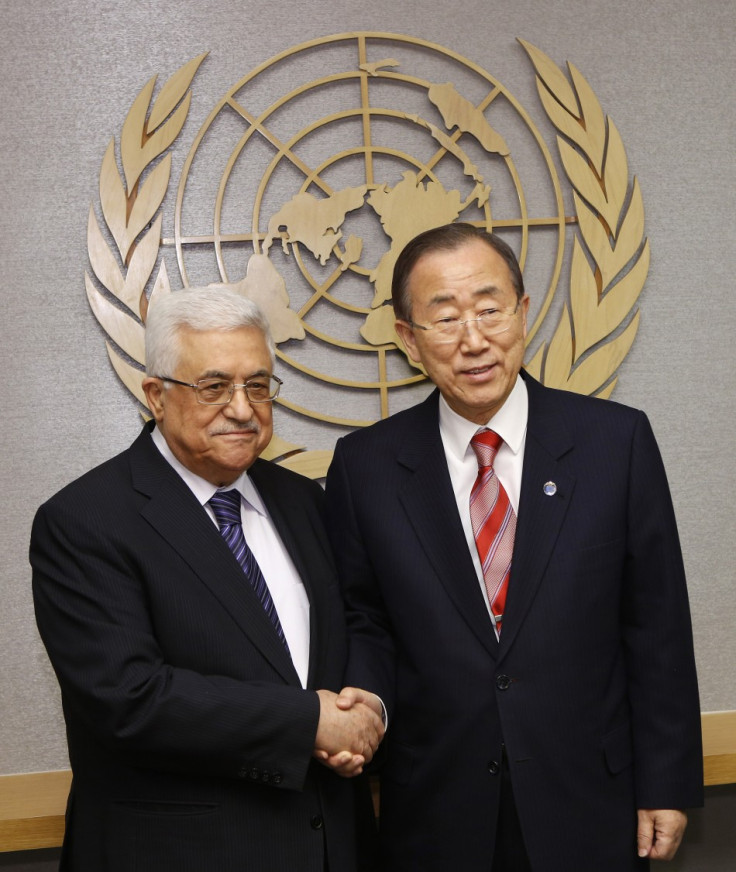Five Reasons Why the UN Should Upgrade Palestine

The UN General Assembly will probably pass a historic resolution recognising Palestine within the 1967 borders as a "non-member observer state", giving the nascent state the same status as the Vatican.
At least 150 countries will back the resolution - with Israel, United States and Canada being the only major countries guaranteed to oppose it.
The bid will implicitly recognise Palestinian statehood - the Palestinian Liberation Organisation (PLO) was recognised as an observer in 1974 - strengthen its chances of joining UN agencies and the ICC, and putting international pressure on Israel. Switzerland was also a non-member observer state for more than 50 years until 2002.
Palestinians have long sought to set up an independent state in the West Bank, including East Jerusalem and the Gaza Strip, which was occupied by Israel during the 1967 Six Day War.
The 1993 Oslo accord led to mutual recognition. However, peace talks since then failed to produce a permanent solution and stalled in 2010 over disagreements on the issue of Israeli West Bank settlements.
In September 2011, PA president and chairman of the PLO Mahmoud Abbas launched a bid for recognition as a full member of the UN. But Security Council members said they had been unable to "make a unanimous recommendation".
Why should the UN General Assembly back the Abbas' bid?
1. Boosting moderate Abbas vs hardline Hamas
As outlined by British diplomats, the resolution will strengthen a relatively moderate figure in the Middle East such as Fatah leader Mahmoud Abbas, in the delicate aftermath of the recent conflict between Israel and hardliner Gaza ruler Hamas. "We want to get behind the Palestinian moderates and strengthen their hand," a UK official told FT. "Abbas needs support".
The bid will bolster Abbas as the legitimate - if less than charismatic - representative of all Palestinians in a time where Hamas is emboldened following the recent air war with Israel in which it was able to strike an important symbolic blow against the Jewish state by targeting Tel Aviv and Jerusalem with new, long range missiles. This and the subsequent ceasefire emboldened the Gaza militants.
Even if the UN move has failed to excite public opinion in the occupied territories in the same way as in 2001, the recent Hamas' U-turn - its political leader Khaled Meshaal said he "welcomed" the effort - demonstrates that the Islamist movement fears a possible Abbas success.
2. Increase possibility of peace talks with Israel
A victorious bid can actually increase Abbas' leverage in peace talks with Israel and secure the pre-1967 borders as the basis of talks. It will also force Abbas to take on his responsibilities as far as the peace process is concerned, as required by Britain and France. The rights for self-determination and sovereignty can boost Palestinians' arguments with Israel on the pre-1967 ceasefire lines. Israel's prime minister Benjamin Netanyahu rejects these territorial lines as "unrealistic" and "indefensible" for a possible negotiations. Nevertheless, the 200 plus settlements in the West Bank (including East Jerusalem), in which about half a million Jews live, are illegal under international law. The UN bid can force both sides to find a solution such as land swaps as a way to overcome the issue.
3. Symbolic value for Palestine statehood
Unlike last year's vote, which was a failure for Abbas, the UN non-member observer status has a widely symbolic value as an international endorsement of Palestine's legitimacy as a state. It is not, as Israel claims, a unilateral and sneaky attempt to obtain independence. The draft resolution, on the contrary, "expresses the urgent need for the resumption and acceleration of negotiations within the Middle East peace process, based on the relevant United Nations resolutions, the Madrid terms of reference, including the principle of land for peace, the Arab Peace Initiative and the Quartet Roadmap, for the achievement of a just, lasting and comprehensive peace settlement between the Palestinian and Israeli sides that resolves all outstanding core issues".
4. ICC reference not guaranteed
Israel is concerned that Palestinians might refer the Israeli government to the International Criminal Court for violating the Geneva Conventions by establishing settlements on occupied territories and war crimes allegations from the 2008-2009 Gaza war. But the chances of Palestine joining the ICC would be neither automatic nor guaranteed. In April, the ICC blocked a Palestinian request to investigate the Gaza operation Cast Lead saying article 12 of the Rome Statute established that only a "state" could join the court. It added it was up to other bodies to determine what constitutes a state.
5. Stop blackmailing Palestinian Authority
If Palestinians win the vote, Israel will be increasingly isolated in blackmailing the Palestinian Authority. Ahead of the UN bid, Israel threatened to withhold crucial tax revenues for the PA and restrict movements of officials in the West Bank. Some foreign ministry papers, leaked in news sites, even suggested that Tel Aviv proposed "toppling" Abbas if Palestine's bid was approved. In recent days, Israeli officials tried to play down the significance of the Palestinian bid at the UN. But they will not be able to ignore an overwhelming victory on an international level.
© Copyright IBTimes 2025. All rights reserved.






















